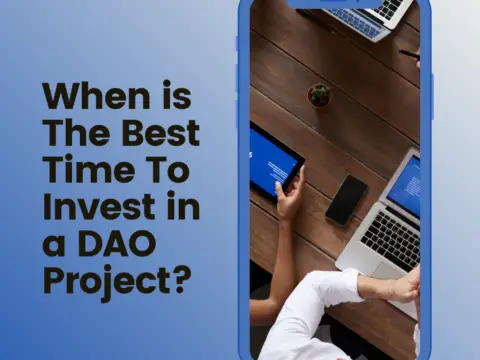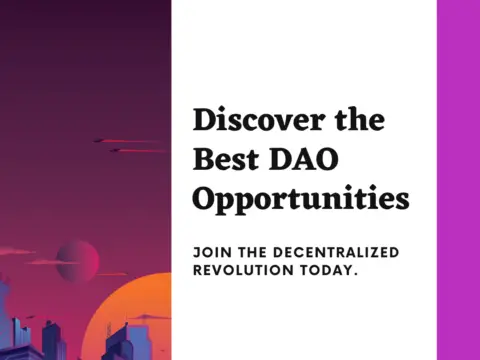Decentralized Autonomous Organizations (DAOs) are reshaping traditional company structures by introducing novel governance models, fostering collaboration, and enabling decentralized decision-making. Let’s delve into how DAOs are impacting traditional company structures:
1. Decentralized Governance:
Peer-to-Peer Decision-Making: DAOs operate on blockchain technology, allowing participants to collectively make decisions through decentralized governance mechanisms, such as token-based voting or consensus algorithms.
Elimination of Central Authorities: Unlike traditional hierarchical structures with centralized decision-making, DAOs distribute power and authority among network participants, promoting democratic and inclusive governance.
2. Tokenized Ownership and Incentives:
Tokenized Ownership: DAOs represent ownership and participation through cryptographic tokens, enabling stakeholders to contribute resources, vote on proposals, and receive rewards or dividends based on their contributions.
Alignment of Incentives: Token-based incentives align the interests of DAO participants with the collective goals of the organization, fostering collaboration, innovation, and value creation within the decentralized ecosystem.
3. Transparency and Accountability:
Immutable Record-Keeping: DAO transactions and decisions are recorded on a transparent and immutable blockchain ledger, ensuring accountability and transparency in organizational activities.
Auditable Governance: DAOs enable stakeholders to audit governance processes and financial transactions in real time, enhancing trust and integrity in organizational operations.
4. Global Participation and Collaboration:
Borderless Collaboration: DAOs facilitate global participation and collaboration, allowing individuals from diverse geographical locations to contribute ideas, resources, and expertise to decentralized projects.
Community-driven Innovation: DAOs harness the collective intelligence and creativity of a global community, enabling rapid experimentation, innovation, and iteration in product development, governance, and decision-making.
5. Flexible Organizational Structures:
Adaptive Governance Models: DAOs can adapt to changing market conditions and organizational needs by evolving governance models, protocols, and voting mechanisms through community consensus and smart contract upgrades.
Modular Frameworks: DAO infrastructure providers offer modular frameworks and toolkits that allow organizations to customize governance structures, tokenomics, and incentive mechanisms to suit their specific requirements.
6. Challenges and Considerations:
Regulatory Uncertainty: DAOs operate in a regulatory gray area, facing challenges related to legal recognition, compliance, and jurisdictional issues in traditional legal frameworks.
Security and Risk Management: DAOs are vulnerable to smart contract bugs, security breaches, and governance attacks, highlighting the importance of robust security measures, code audits, and risk management protocols.
Governance Sybil Attacks: DAOs may face governance sybil attacks, where malicious actors manipulate voting outcomes by acquiring a large number of tokens or creating fake identities, necessitating mechanisms to prevent manipulation and ensure fair governance.
Conclusion:
DAOs are revolutionizing traditional company structures by introducing decentralized governance, tokenized ownership, transparency, and global collaboration. While DAOs offer unprecedented opportunities for innovation and community-driven decision-making, they also pose challenges related to regulatory compliance, security, and governance. As the DAO ecosystem continues to evolve, organizations and policymakers will need to navigate these challenges while harnessing the transformative potential of decentralized autonomous organizations to create more inclusive, resilient, and adaptable organizational structures for the future.



